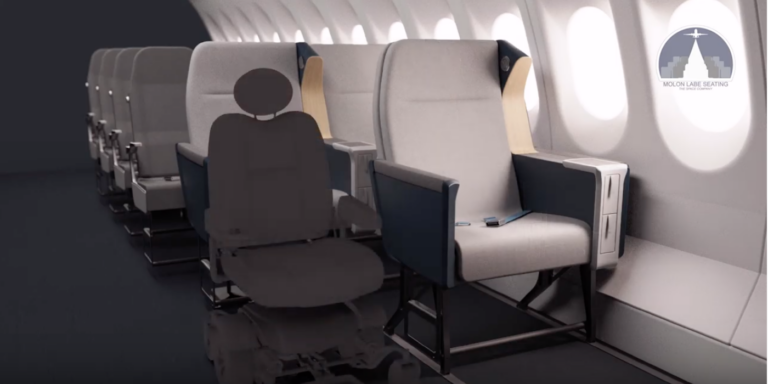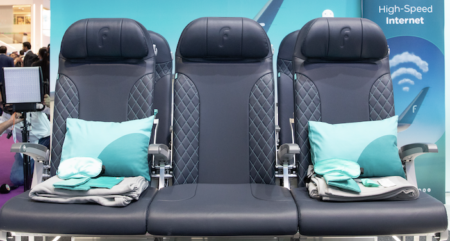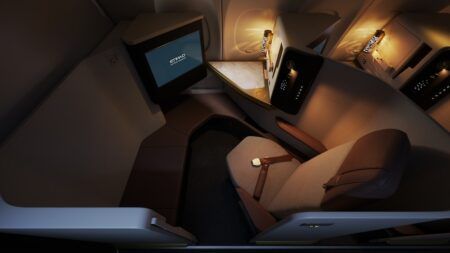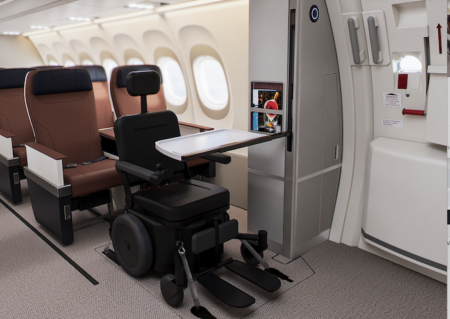There is growing pressure for airlines to offer disabled flyers greater comfort and dignity on board aircraft, and several industrial designers in the aviation sector have been creating innovative designs to address this movement. The latest design comes from Molon Labe Seating, a small but creative aircraft seat design company based in Denver that has developed a way for passengers to fly seated in their own wheelchairs – a crucial point as their chairs are often optimised for their personal support and comfort needs, and disabled passengers worry about damage to their chairs if transported in the hold.
Molon Labe’s design, named the Freedom Seat, is based on the company’s existing Side-Slip Seat (S3) design, so-named because it allows the aisle seat to slide over the centre seat to create a wider aisle for more efficient aircraft boarding. The principles and hardware of the S3 have been carried over to the Freedom Seat, with the major modification being a change from an economy triple seat to wider double seats. While the centre seat in the triple configuration cannot be sat upon during flight (it is only deployed during boarding), the wider seats of the double enable crew to slide the aisle seat completely over the window seat (which is slightly lower), opening up 32-36in of floorspace, which is sufficient to secure a wheelchair. Both manual and powered wheelchairs can fit in the space, secured to the floor for flight using a Q’Straint docking system – a hardware already certified by the US DoT and used to secure wheelchairs on buses and trains.
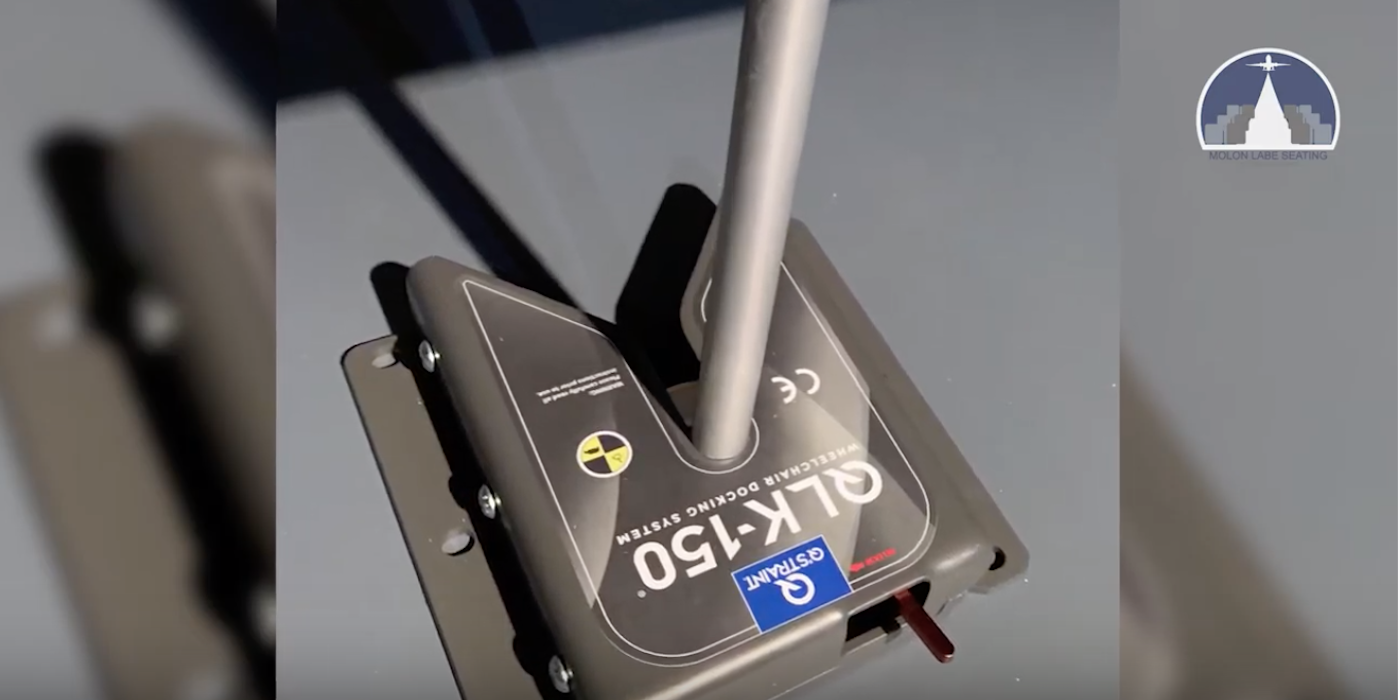
This latter point is important as in February 2020 the FAA indicated that it wishes to work quickly to allow wheelchairs to pass the FAA certification requirements. As such the FAA will take into account much of the testing and regulations already in place with DoT vehicle-approved wheelchairs to expedite this process as quickly as possible. Egress issues will be a particular consideration for aviation.
Hank Scott, founder and CEO of Molon Labe Seating stated that a benefit of the design aside from disabled access is that “Airlines don’t lose real estate or revenue”.
The hardware side is no issue for Molon Labe, as the design is based on a patented and proven technology. However, funding is a bigger issue, and Molon Labe is seeking financial support via crowdfunding to bring the Freedom Seat to market as it does not currently have the capacity to develop an additional seat model. The fund-raising campaign is titled ‘Project Winged Chariot’ and monies raised will be used to design, engineer, analyse, test and certify the Freedom Seat, and as general working capital. Funds will also be used build prototypes for that airlines can use to assess and modify the design to fit their exact customer needs. According to Molon Labe it usually costs ‘in excess of US$5 million’ to complete all the design, engineering, analysis and crash testing work required to achieve FAA certification of a new airline seat design.
The campaign is well timed, as in September 2019, the US Department of Transportation announced the formation of the Air Carrier Access Act Advisory Committee (ACAA Advisory Committee), established pursuant to the FAA Reauthorization Act of 2018. The committee is working to improve the air travel experience of passengers with disabilities and to increase their access to air travel. The FAA Reauthorization Act also included the mandate to perform a study on the feasibility of in-cabin wheelchair restraint systems and the subsequent accommodations needed.
Christopher Wood, founder of Flyingdisabled.org, who is also an aviation accessibility consultant and a member of the UK CAA Access to Air Travel Advisory Group, gave the following statement to Aircraft Interiors International: “I think what Molon Labe and JPA have designed is exceptional and truly innovative. It offers a window of hope for all those that want to fly seated in their own power wheelchair. It’s not a case of how it will be done, more a case of when. However, these are dark times in the aviation industry, and we must first and foremost offer the hand of help and friendship where we can so we still have an industry that will innovate and fly.”
Molon Labe has partnered with industry experts for the design, engineering, testing and certification of the Freedom Seat:
Q’Straint: Wheelchair docking system
Quantum Rehab: Wheelchair manufacturer
Allwheelsup.org: US-based accessibility advocates
Flyingdisabled.org: UK-EU-based accessibility advocates
Primus Aerospace: Manufacturing
National Institute of Aviation Research: Analysis and testing
JPA Design: Conceptual design


